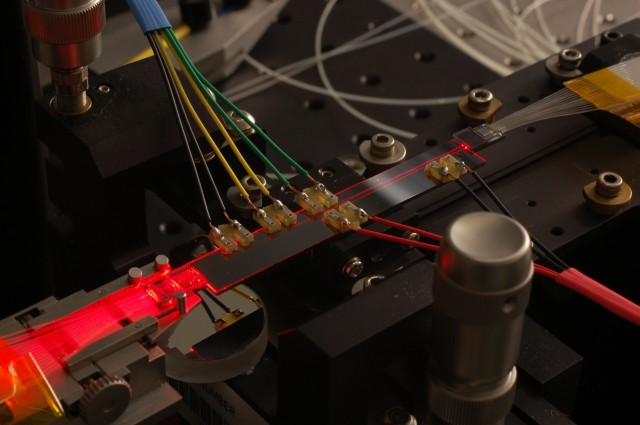Can quantum computer measurements beat classical computers?
Ars Technica » Scientific Method 2012-12-21

We've covered a lot of the progress that has gone into creating effective quantum computers. Although there has been a good deal of progress in terms of building individual components, we haven't been able to put things together into a complete device. That has left us building small, proof-of-concept systems that are handily outperformed by existing classical systems. Without a large enough system, we can't clearly demonstrate the sort of accelerated performance we predict we'll get from quantum hardware.
Two groups of researchers have now figured out a way to test whether quantum systems really can outperform a classical computer. Their systems, which take advantage of a phenomenon called boson sampling, can't be used to compute any algorithms, so they're not as useful as quantum computers might be. But they can be used to confirm that we're on the right track when it comes to quantum computers.
A quantum computer isn't like our existing computers, where electrons flow through a series of switches. Instead, a carefully prepared quantum system is allowed to evolve, and it is then measured. The system only provides us with an answer because we can map different answers to all the possible states that the system can end up in. Because quantum systems evolve very quickly, it should be possible for these systems to arrive at an answer much faster than a typical computer.
Read 10 remaining paragraphs | Comments